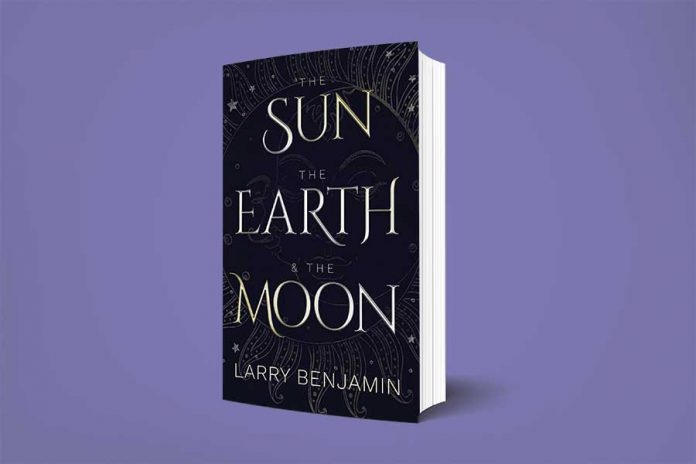“The Sun, the Earth, and the Moon” is a book of endings and beginnings. The journey from adolescence into adulthood, the line between friendship and love, the disparity of the world before and the world after AIDS. Larry Benjamin’s novel, set primarily in Philadelphia, is the story of Thomas, an African-American 17-year-old boy eager to begin college at Penn and escape the heterosexual pantomime forced on him by his parents.
The day he arrives on campus, Thomas meets his roommate, Dondi, a candid, hedonistic wild-child whose trust fund affords him anything he desires. The two quickly step into a friendship of excess. Dondi serves as Thomas’ introduction both to gay life and to the high life, treating him to nights out at the disco and thousand-dollar Piaget wristwatches. Thomas, smitten by Dondi’s charms in the bedroom and out, becomes willingly swept up into the whirlwind. But as he is introduced to Dondi’s family and thrown from party to party, he often struggles to keep pace.
On his newfound life of luxury, Thomas comments, “Often that summer, I would feel as if I’d stumbled into an F. Scott Fitzgerald novel.” While the palatial mansions and lavish parties bring to mind “The Great Gatsby,” Thomas appears to be more from “The Catcher in the Rye,” as a better adjusted, less blind Holden Caulfield. One scene in particular, where Dondi’s father strokes Thomas’ hair, echoes a moment from the Salinger novel between Caulfield and his teacher, with a similar homoeroticism and far more tenderness. Thomas navigates his new settings with curiosity, and almost as quickly as he fell into Dondi’s orbit, begins to fall in love with Dondi’s younger brother, Matthew.
But just as relationships solidify between Thomas and Matthew, and a jealous Dondi with a whole host of men, their world, shielded by the privilege and ignorance that wealth affords, begins to unravel.
If the first half the novel is a warm surrender to consequences, a willing escape into a lush and exciting life, the second half is a battle to avoid it all, to evade the inevitable reality of AIDS in the 1980s. But it is right of Benjamin to let us know the characters long before such specters cloud their lives. We get to know the men in their happiness, before illness, and not just as patients and caregivers slave to disease.
How the characters handle themselves at the beginning of the AIDS crisis rings true to the general public’s lack of knowledge in the early years. Until the disease affects them directly, none of the characters know anything about it, and there is no urgency or alarm. Once it hits home, however, they desperately search for a cure. But as it was in real-life, their efforts yield nothing concrete. Unfortunately for the men, there is no fantasy to be found, no alternate world to be purchased at any price.
During the most significant moment of turmoil, the characters indulge in some historically disproven conspiracy theories about the origin of AIDS. Although the outburst feels out of place in an otherwise noncontroversial story, such thinking was not uncommon among people at the time. Medical and government distrust was massive; rumors abounded. Perhaps more frustrating was that once the disease took hold, there was no stopping it, no way to freeze time and wait for doctors and politicians to catch up. There was a before and an after. And the after was impossible for many to survive.
Benjamin’s novel, for all the highs and lows forced on the characters, is an enjoyable, easy read. The prose is clean and direct. The scenes begin and end at the right moments. Readers aren’t forced to wade in sentimentality. Benjamin knows when to focus on the minute details and when to zoom out for a broader perspective. And although the narration is from the adult Thomas’ view, he has the experience and hindsight to give us only what matters to his story and nothing else. We’re free to journey with him from Philadelphia to Rhode Island, from Dondi to Matthew, from a naïve boy to a man who finds the courage to love. It’s a worthwhile trip.
Larry Benjamin is the director of communications at Mazzoni Center. To purchase “The Sun, the Earth, and the Moon,” visit bit.ly/lbenjaminsun
